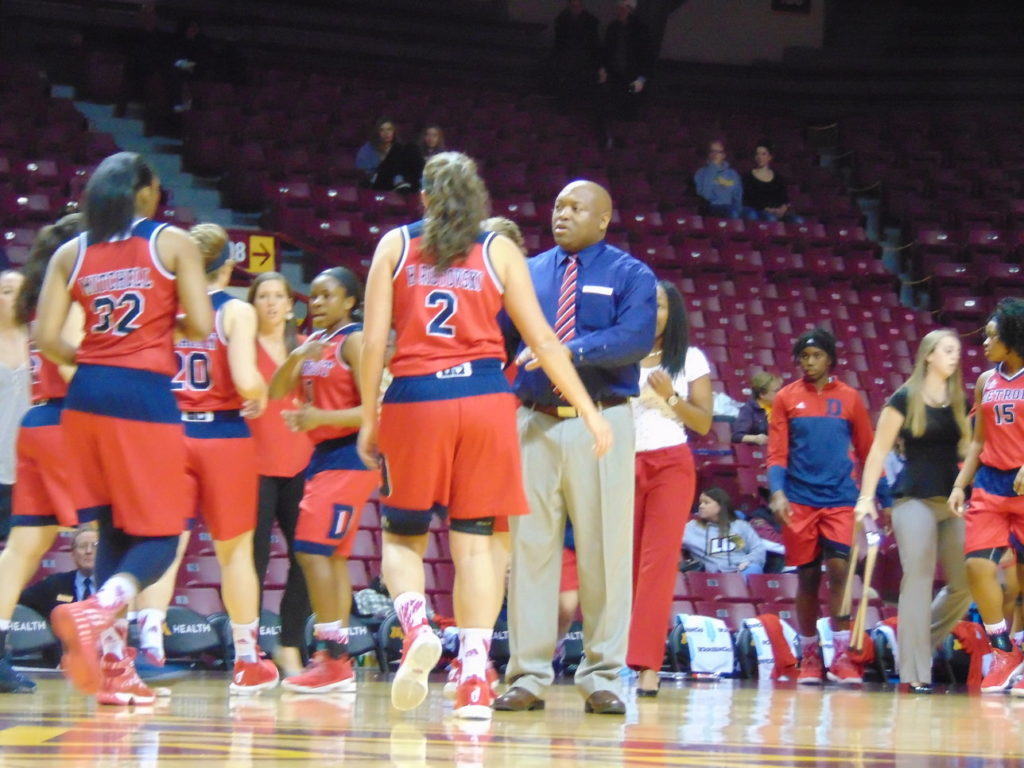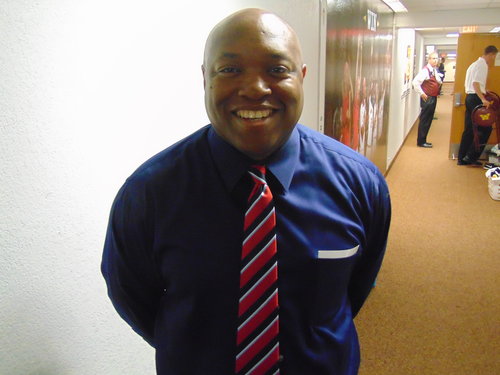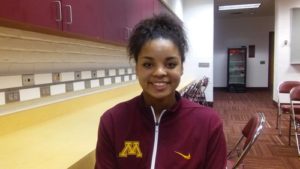
 The percentage of Black head college basketball coaches, whether women or men, has never equaled or remotely come close to the percentages of Black players. For instance, Black females comprise 47 percent of women basketball players, but under eight percent of women’s basketball head coaches are Black. Only four percent are Black males.
The percentage of Black head college basketball coaches, whether women or men, has never equaled or remotely come close to the percentages of Black players. For instance, Black females comprise 47 percent of women basketball players, but under eight percent of women’s basketball head coaches are Black. Only four percent are Black males.

Bernard Scott is the only Black male head coach to bring a team to Williams Arena this season when the University of Detroit Mercy (UDM) played Minnesota on December 3. He is in his second year at UDM and has been an assistant coach for 15 years at five different colleges, beginning at his alma mater Toledo in 2001.
Scott’s ultimate goal during that decade-plus stint was to work hard enough and be impressive enough to interest a hiring athletic director one day “and get my shot,” he told the MSR after the contest. “I thank God that Detroit Mercy gave it to me,” he said of his first head coaching job.
The Titans in his first year didn’t lose consecutive games during Horizon League play and swept three season series. UDM set school records for three-pointers and free throw percentage and finished 17th in the nation for fewest turnovers, scoring over 80 points 11 times last season.
Detroit Mercy this season is picked in the league preseason poll to finish second in the Horizon League — they were fourth last season. Junior forward Brianne Cohen was second last season among league scorers in field goal percentage and among the nation’s leaders in this category as well.
They lost to Minnesota in their first meeting since 2004-05. “We got some things to work on for conference play,” which begins later this month, noted Coach Scott. “We didn’t box out. If we boxed out a little bit, we would have had a chance to win the game.”
Scott saw the UDM program as a perfect first opportunity to lead a program. Too often Blacks are hired as virtual miracle makers, often at struggling programs, and then, not given enough time to enact competitive change, they are summarily dismissed.
“Michigan is a great place for girls’ basketball,” said Scott — seven of the 11 Titans players hail from the Great Lake state. “This is a great place to be. We got great young ladies.”
We try whenever possible to spotlight Black coaches when they come to town. Scott is the second of four Black head women’s basketball coaches whose teams are scheduled to play at Minnesota this season. Quite frankly, if we don’t give them some attention, who will? Certainly not mainstream media, most notable for their benign neglect of Black head coaches and the obstacles they face that their White counterparts typically don’t.
“I hope it comes to a point when everybody will have the same opportunity,” said Scott. “I think for us, as minorities, we got to continue to push forward, put ourselves in position to make it hard for people not to hire us.”
Another rarity (see this week’s SOE column)
It’s a rare occurrence indeed when one Black coach replaces another. But it happened this week when Amber Stokes was hired as the new Chicago Sky head coach, replacing Pokey Chatman, who’s now coaching Indiana. Stokes was an assistant coach with the WNBA champions Los Angeles.
Globe-tracking the Lynx
Keisha Hampton (Israel) had a 40-point night for her Bnot Hertzeliya club. Sylvia Fowles’ double-double (26 points, 17 rebounds) helped in a win for Beijing. Natasha Howard (Samsung Blue Minx) scored 10 points and grabbed eight rebounds in a South Korean game last week.
Finally…

“I can’t wait. It’s my first one,” said Gopher freshman hitter Alexis Hart last Saturday after Minnesota advanced to its second consecutive NCAA Volleyball Final Four. She had 21 kills in wins last weekend over Missouri (3-1) and UCLA (3-0).
Minnesota plays Stanford Thursday in the national semifinals in Columbus, Ohio.
Next week: The first of two reports by The Institute for Diversity in Sport and Ethics
Charles Hallman welcomes reader responses to challman@spokesman-recorder.com.
